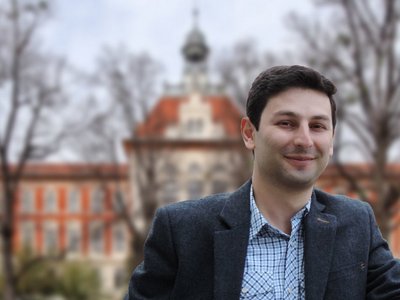

In his home country Armenia Tigran studied human and environmental geography focusing on Sustainable tourism development and was involved in different educational and development projects. During this period, he has observed how different promising tourism projects failed during or after the implementation phase because the local population was not involved in the project design and decision-making processes. Moreover, having a double role as an academic and a local practitioner, he realized that there is a big gap between how tourism is perceived in local academic circles and tourism in real life. The theoretical ideas learned at the university were hardly applicable in practice, and, as a graduate, he faced many challenges while conducting practical work. Working as a geography and environmental sciences teacher at a local school (Dilijan Central School) also helped him realize how education can change mindsets and shape a sustainability-oriented generation. Hence, his motivation was to integrate universities into the societal problem-solving process and bring university education and research close to real-life problems.
These questions motivated him to start a Ph.D. project at the Armenian State Pedagogical University, in order to focus on educational approaches. Due to the CaucaSusT project, he became familiar with the concept of transdisciplinarity, which can be defined as the co-creation of knowledge with academics, practitioners, and local community members, linking university courses and research with societal issues. While transdisciplinarity is widely used in western academic institutions, it remained largely unknown in the post-Soviet education system. Thus, together with colleagues from Austria, Armenia, and Georgia, Tigran has started his doctoral journey in Austria to analyzing the challenges of and opportunities for implementing transdisciplinarity approaches in academic systems of two South Caucasus countries: Armenia and Georgia.
The research was part of the APPEAR project Transdisciplinarity for Sustainable Tourism Development in the Caucasus Region (CaucaSusT) which aimed to enhance the university-community cooperation in the Caucasus mountain region focusing on sustainable tourism development. During his studies at BOKU, Tigran has gained experience in innovative theoretical as well as methodological approaches to research and learned about inter- and transdisciplinarity, which contributed to his practical research.
In his talk, he spoke about his motivation for starting the doctoral project as well as the specific challenges and opportunities for integrating and applying transdisciplinary approaches in the post-Soviet academic institutions of Armenia and Georgia. For more information, please see the published papers.
Moreover, Tigran shared his experience of being a doctoral student in Austria. He talked about how he become familiar with Austria's culture. More particularly by reading about Austrian history, visiting museums and concerts, traveling, and hiking. In this regard, OeAD events and excursions provided a good platform for integration. Sprachcafés and the interaction with locals helped him to learn German. The presentation followed by questions and answers with participating OeAD scholars.
Tigran Keryan received his doctoral degree in Social and Economic Sciences (Dr.rer.soc.oec.) in March 2021 in association with the CaucaSusT project at the Doctoral School Transitions to Sustainability (T2S) at the University of Natural Resources and Life Sciences (BOKU), Vienna. Previously he worked as a geography and environmental sciences schoolteacher in Armenia and was involved in different academic and development projects in the field of sustainable development.
